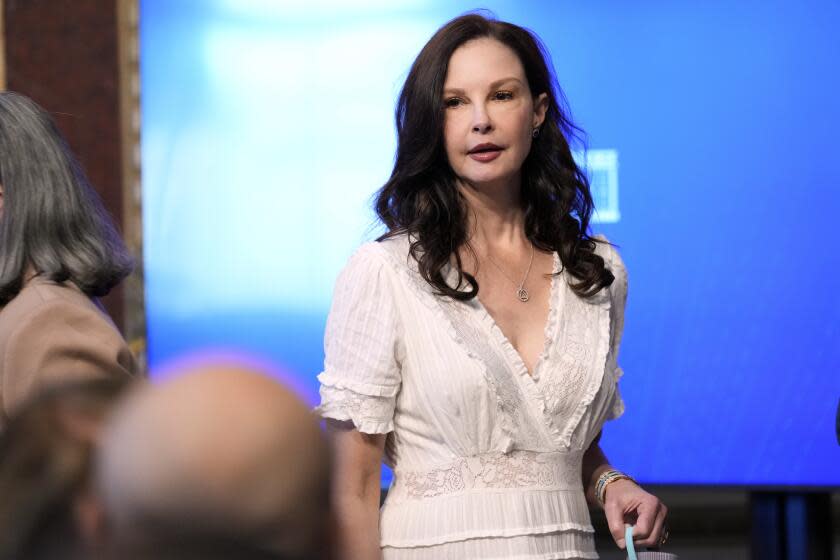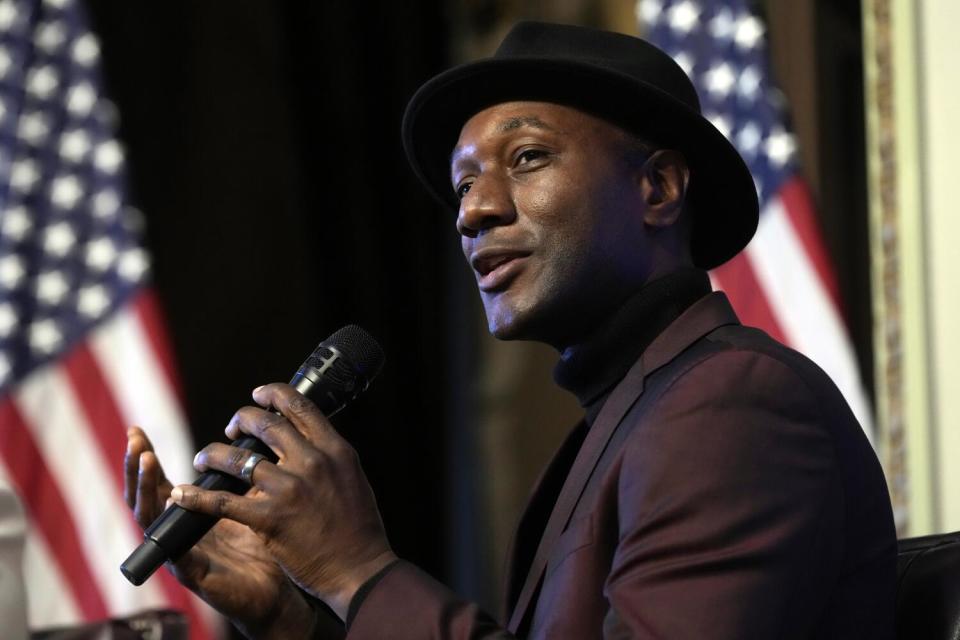Ashley Judd, Aloe Blacc open up about deaths of Naomi Judd, Avicii in White House visit

Ashley Judd and Aloe Blacc visited the White House on Tuesday to promote the Biden Administration's newly formed National Strategy for Suicide Prevention and federal action plan, speaking candidly about the deaths of Judd's mother, country-music star Naomi Judd, and Blacc's frequent collaborator Avicii.
"I've learned in recovery that I can pretend to care but I can't pretend to show up," Ashley Judd said on a panel discussion alongside Vivek Murthy, surgeon general of the U.S., and Shelby Rowe, executive director of the Suicide Prevention Research Center.
"I'm here because I am my beloved mother's daughter and on the day she died, which will be the two-year anniversary in one week, the disease of mental illness was lying to her and with great terror convinced her that it would never get better," Judd continued.
The actor and advocate said she firmly believes that "we deserve to be remembered not just for how we died but how we lived." She spoke about her mother's early days growing up in the Appalachian region of eastern Kentucky and how Naomi Judd loved "holding an audience's attention," and asserted that her mom "left country music better than she found it."
Read more: What not to ask the loved ones of those who have died by suicide
The 76-year-old country star died in April 2022, a day before mother-daughter duo the Judds — made up of Naomi and eldest daughter Wynnona — was inducted into Country Music Hall of Fame. The family initially said they lost her "to the disease of mental illness." Then, weeks later, Ashley Judd confirmed during a “Good Morning America” interview that her mother had used a gun to end her life.
On Tuesday, the "Divergent Series" alum noted again that Naomi Judd was a “survivor of childhood and adult male sexual violence” and became a nurse who sometimes relied on public assistance. She said her mother was fighting "an unseen disease" for most of her life and, "untreated and undiagnosed," it "stole from her and it stole from our family, and she deserved better."
Read more: A day after Naomi Judd's death, her daughters usher the Judds into country hall of fame
The 56-year-old also opened up about her own mental health struggles and successes. She experienced childhood depression after being molested at age 7, she said, and, because of that she knew well the feeling of "not wanting to be here." However, she started treatment in 2006 for her unresolved childhood grief and sexual trauma.
"I've been in good recovery for 18 years and I've had a different outcome than my mother," the "All That Is Bitter and Sweet" memoirist said. "I carry a message of hope and recovery."

Judd said she relied on her "chosen family" to process her mother's death, as Aloe Blacc did with his own after Avicii's suicide.
The "I Need a Doll" and "The Man" hitmaker opened up about how he processed the death of the Swedish DJ, real name Tim Bergling, who died in 2018.
"The outpouring of love that came from our community of fans was really helpful, helping me get through his passing," Blacc said. "The family and friends within our circle were also very, very helpful and supportive. Not everybody has that kind of support, and so of course I've got a unique experience."
Read more: Ashley Judd says mom Naomi Judd suffered a 'level of catastrophe' before her suicide
Blacc encouraged people "to offer a moment of joy" when they reach out and to share a positive memory that's going to bring the person joy. He also elaborated on his fellow panelists' remarks about how people can "show up" for someone who is having suicidal ideation, explaining that he and his friends have since created "a system of check-ins from everyone within this constellation of support" to help loved ones in need.
"Don't worry if you're saying the wrong thing. I think what it comes down to is reaching out and making that connection, and I don't think there's some such thing as too much love. Let's give as much as we can," he said.
Read more: Therapy Elmo? Social media manager weighs in on Elmo's inadvertent mental health check
Overseeing Tuesday's panel and advocating for the administration's federal action plan was Doug Emhoff, husband of Vice President Kamala Harris. Emhoff said the plan aims to reduce the country's roughly 132 suicides a day.
“We’re here today because we know that we can and will change this,” he said. “Suicide is preventable.”
This story originally appeared in Los Angeles Times.